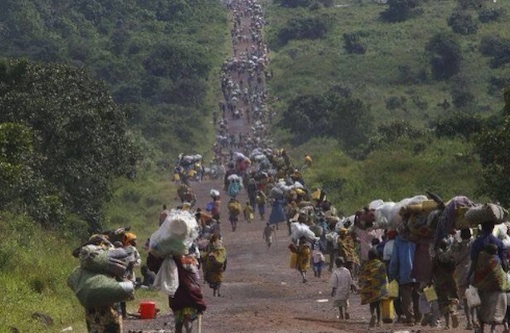Around 40,000 people have fled their homes in Chad in the past two weeks following attacks by Islamist militant group Boko Haram, according to an aid agency, as the insurgency stokes an escalating humanitarian crisis in the region around Lake Chad.
Médecins Sans Frontières (MSF) said many of the displaced people have gathered in makeshift camps where its staff were treating patients with diarrhoea, malaria and respiratory infections, as well as malnourished children.
“Some pregnant women have walked several kilometers in searing heat to seek medical attention,” said Federica Alberti, MSF’s head of mission in Chad.
“People are living without proper shelter, and do not have access to food or clean drinking water.”
The Lake Chad region has become increasingly unstable since 2013, with Boko Haram violence triggering a growing crisis. At least 1,300 people have died in fighting so far this year in the region, MSF said.
In neighbouring Niger, refugees and displaced people face food shortages and an increase in waterborne diseases as the conflict compounds a fragile humanitarian situation, MSF said.
The situation could deteriorate further during the “hunger gap” between harvests, when community food stocks are drastically reduced, MSF said.
Boko Haram has fought a six-year insurgency to carve out an Islamist state in northeast Nigeria, and is still carrying out cross-border attacks, in the face of a Nigerian military campaign bolstered by Niger, Cameroon and Chad.
The United Nations says 1.4 million people have been forced to flee their homes in northeast Nigeria, the birthplace of the Islamist group and a frequent target of raids and suicide bombers.
Hundreds of thousands of displaced people currently live in Maiduguri, the capital of Nigeria’s Borno state. Many are supported by local communities, while around 80,000 are gathered in 15 camps around the city.
“There are 12 of us living in a tent, with no other choice,” Aisha, a 55-year-old woman living in a camp in a Maiduguri suburb, told MSF. “The canvas is torn and inside it is full of dust and insects. Everything gets wet when it rains.”
Reuters














